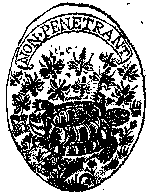Pillory TheaterSource Material |
 |
Pillory TheaterSource Material |
 |
| Bodke on Burdick Memorable, Exciting, New: An Evening With The Pillory Theater by Dr. Richard Bodke, Professor of English, Adelphi University December 5, 1968 To begin with: Let us all thank the great God Dionysus for Jacques Burdick and his little band of devoted disciples! Now that I have expressed the piety appropriate to the Pillory Theater, I feel free to be a critic! Runesglee, the major portion of last week's performance by the Pillory Theater, was a vivid representation of a civilization doomed by it's entrapment in words and divorced from the life-giving forces of deep instinctive feeling which (alas!) words were originally invented to express. Using the religious metaphor to dramatize the myths men live by and their gradual death by the abstracting forces inherent in our use of language, the composition (the best word I can think of to describe it) was made memorable largely in the visual images of body "confrontations" and by it's skillful use of props as symbols. The vivid image of Prometheus attacked by eagles, the use of pure physicality for it's dramatization of the story of Abraham and Isaac, the ironically grotesque picture of Mary and Joseph on their flight into Egypt, the odd and compelling version of Solomon's judgment (one thinks of Brecht's comparatively "thin" version of it in contrast), the horrifying version of the "Song of Songs", the final "death of God" and with it the death of our civilization... all of these made the evening memorable theater and certainly provoked in this viewer a deep admiration for the imagination and the creativity of both Burdick and his troupe. The initial creation of the world as a kind of concentration camp, at once giving form and imprisonment to our lives, expressed in brilliant theatrical metaphor the major point of the composition. The actors, all of them, deserve the highest praise for their ensemble work and for their discipline and energy beautifully working in tandem. Yet, as physically violent as this production was, its effect was essentially cerebral. My mind was constantly engaged by the performance, but one thing that the production aspired to was strangely missing: namely emotional impact. Even the intimacy and determined regrouping of the small audience did not finally accomplish full emotional involvement in the work. I say this sadly: because I wish it had. There was poetry, too, especially echoes of T.S. Elliot and his hollow men... and also in a central way the closing of The Wasteland:"These fragments I have shored against my ruin." And I was personally reminded often of Wallace Stevens lines: "Beauty is momentarily in the mind ... But in the flesh it is immortal." Perhaps the play, ironically enough, was still too verbal for it's intentions. The physical activity of the group made it's point most emphatically; the words often diminished the effect. Perhaps what I am trying to say is this: on a literary level it was merely interesting, but on a theatrical level it was consistently brilliant and intellectually engaging. | |